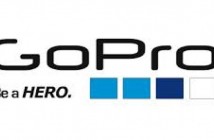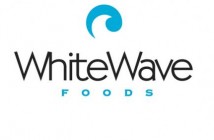Burger King (NYSE:BKW) has had to take a lot of brunt for its Tim Horton (TSE:THI) deal in the past few weeks. But the interesting thing to note here is that this is not the first time Burger King (NYSE:BKW) has made a move according to its strategies for the tax inversion; it has happened in the past as well.
A recent analysis threw some light on a few strategic moves made by Burger King (NYSE:BKW) both locally and overseas to cut down on taxes.
It won’t be wrong to say that currently Burger King (NYSE:BKW)’s business is among the most tax-efficient ones operating in the United States. The fast food chain works up ways to reduce United States taxable profits and at the same times increases its own profits by going overseas and operating within jurisdictions that are low-tax.
Burger king (NYSE:BKW) didn’t comment on its U.S. tax provisions but it has reported a $11.5 billion purchase of Tim Hortons. The company claims that the deal was made to expand the business to international markets and Canada is the market where the fast food chain has the biggest business growth.
According to Burger King (NYSE:BKW)’s CEO Daniel Schwarts, the company won’t have any material change in its tax rate, which proves that the move is purely for the sake of expansion and not for tax inversion.
It has become a common practice for companies these days to report lesser amount of income to the IRS as compared to the amounts reported to tax authorities overseas. Burger King (NYSE:BKW) made about 60 percent revenue in the U.S. from 2011 to 2013, but the chain showed only 20 percent of the company’s profits for this time period.
The low profit reported by Burger King (NYSE:BKW) in the U.S. shows an average of 4 percent domestic profit margins in the years 2011-2013. Burger King (NYSE:BKW) declined to announce why there were such low margins in its U.S. operation. The company reported a loss in 2012 and minimum profit in 2011. However, profit levels were much better in 2013.
There may be other explanations for these low margins instead of tax-driven incentives. The fast food chains in the U.S. face a lot of competition which forces them to offer lower prices as compared to other markets. This is accompanied by higher labor costs in a few states which have to be paid for by the franchisee. Burger King (NYSE:BKW) runs a very few of its own restaurants. That is why the profits reported are low.
Germany is also another of the tax-efficient zones for the fast food chain; the country has always been the largest market for Burger King (NYSE:BKW) outside of North America. It generates more than 10 percent of the total sales of the company.
In 2011-2012, the company made sales of about $501 million in Germany which was more than half of what was made from Middle-East, Europe and Africa.
2011-2012 EMEA operating-profits were about $356 million. Even then, Burger king (NYSE:BKW) Beteilligung suffered losses which totaled to more than $10 million with a tax credit of net income of more than 200,000 Euros.
With only a few exceptions all the restaurants of Burger King (NYSE:BKW) are now franchises and above 80 percent of its revenue comes from property revenue and franchise fees. The company had about 7,384 franchises by last year’s end.





Pingback: orange hawaiian mushroom for sale magic boom bars where to buy psilocybin capsules for sale
Pingback: Luxury Villa Phuket
Pingback: บ้านมือสอง
Pingback: crumpets disposable
Pingback: Sciences Diyala
Pingback: yehyeh.com
Pingback: mescaline powder for sale
Pingback: เช่ารถตู้พร้อมคนขับ
Pingback: ปลูกผม
Pingback: ชอบหีสวย.com
Pingback: sex phim
Pingback: วิธีแทงบอลสเต็ป ง่ายๆ บนมือถือ เล่นได้ที่ LSM99
Pingback: จำหน่ายอะไหล่อุตสาหกรรม
Pingback: บาคาร่าเกาหลี
Pingback: เค้กดึงเงิน
Pingback: slot online ทุนน้อย
Pingback: สำนักงานบัญชี ภูเก็ต
Pingback: รับจำนำรถใกล้ฉัน
Pingback: allbet ค่ายคาสิโนออนไลน์ เจ้าแรก เกมเยอะ ขั้นต่ำ 10 บาท
Pingback: fenix168
Pingback: Jaxx Liberty
Pingback: บอลชุด
Pingback: Loi Kroh Muay Thai ticket
Pingback: ADVANTPLAY
Pingback: PHUKET VILLA
Pingback: PGSLOT ระบบเกมมาตรฐาน เข้าเล่นบนมือถือ เบทเกมต่ำ
Pingback: Profibus cable
Pingback: เว็บ lotto vip
Pingback: thailand tattoo
Pingback: tga168
Pingback: BAU_2025
Pingback: สล็อต888 วอเลท
Pingback: แว่น Dior
Pingback: ติดตั้ง ais fiber
Pingback: EV Charger
Pingback: ufabet789
Pingback: sextoy
Pingback: โฆษณายา
Pingback: redirected here
Pingback: พรีออเดอร์จีน
Pingback: hitslot
Pingback: clothing manufacturer
Pingback: sa789